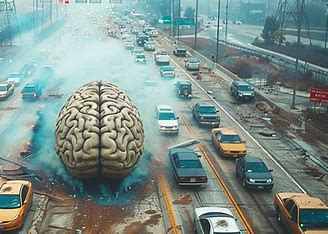A new study conducted by researchers from Rush University Medical Center in Chicago has revealed a strong correlation between night-time light pollution and the risk of developing Alzheimer’s disease. Published in Frontiers in Neuroscience, the research shows that exposure to artificial light at night may disrupt natural circadian rhythms, increasing the likelihood of Alzheimer’s, particularly in individuals under 65.
Understanding Alzheimer’s Disease
Alzheimer’s disease is the most common form of dementia, a condition marked by cognitive decline. It affects memory, decision-making, and daily tasks. As the disease progresses, patients become disoriented and may struggle with simple routines. According to WHO data from 2023, over 55 million people globally suffer from dementia, with Alzheimer’s contributing to 75% of cases.
In India alone, between 3 and 9 million people are affected by the disease, a number expected to rise as the population ages. While there are drugs that can slow down cognitive decline, there is currently no cure for Alzheimer’s.
Findings of the Study
Researchers, including Robin Voigt and Ali Keshavarzian, used satellite data to measure night-time light pollution in the US and compared it with Medicare data on Alzheimer’s prevalence. They found that light pollution was more strongly linked to Alzheimer’s than other factors like alcohol abuse, chronic kidney disease, and depression.
However, conditions like diabetes and hypertension were found to have a stronger correlation with the disease. The study noted that light exposure had a more significant impact on early-onset Alzheimer’s (before age 65).
How Light Pollution Affects Health
The study suggests that night-time exposure to artificial light disrupts the body’s natural sleep-wake cycles, or circadian rhythms, which play a crucial role in maintaining overall health. Disrupted sleep patterns have been associated with conditions like obesity, diabetes, and depression—all of which are risk factors for Alzheimer’s.
Light Pollution: A Growing Global Issue
Today, 80% of the world’s population is exposed to light pollution, primarily in urban areas. Although artificial lights provide safety and convenience, they may have unintended consequences for both human health and the environment. Researchers emphasize the need for policymakers to take the issue seriously and consider the potential health risks of light pollution.







